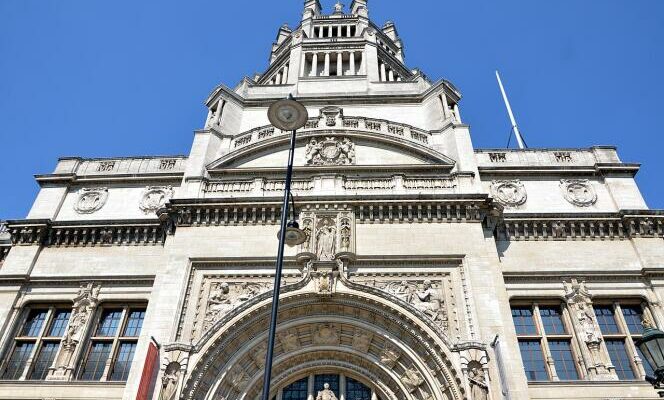Tristram Hunt, 49, has been, since 2017, the director of the Victoria and Albert Museum (V & A), the largest decorative arts museum in the world (2.7 million objects in its permanent collection, including 65 000 on display) and one of England’s fourteen national museums. From the massive headquarters of the institution, in South Kensington, in the heart of London, the leader, historian and former Labor MP, makes a dissonant voice heard on the sensitive subject of restitutions in relation to the conservative government of Rishi Sunak, while the controversy over the return to Greece of the Parthenon marbles held by the British Museum has recently heated up.
At the end of November, the head of government caused a diplomatic accident by canceling, at the last moment, an interview with the Greek Prime Minister, Kyriakos Mitsotakis, on the grounds that the latter wanted to discuss the restitution of the Elgin marbles (named after the British diplomat who acquired them at the beginning of the 19th centurye century with the Ottoman colonial authorities of the time). These marbles have been claimed by Athens since Greece gained its independence. “Administrators of national museums should benefit from greater autonomy in the management of their collections and be able to transfer pieces provided that these transfers are validated by a preservation committee”, explains Mr Hunt, who was education minister in Ed Miliband’s shadow cabinet (between 2013 and 2015).
The collections of British national museums are governed by two laws, the first, dating from 1963, specific to the British Museum, the second, adopted in 1983, identical to the first but applied to other national museums. These texts prohibit the administrators of these institutions from transferring all or part of their collections except in very exceptional cases (if the objects are very damaged or have been duplicated, for example).
“These laws, which are at least forty years old, deserve to be revisited. They have a strong element of chauvinism, but the debate and opinions have evolved, as has the United Kingdom’s place in the world. Institutions like the Horninam Museum [musée privé londonien], who returned bronzes from Benin to Nigeria [en 2022], demonstrate that we can return works while continuing to be a brilliant and functional museum”, adds Tristram Hunt, who regrets the “lack of political will”on the Conservative side, as on the Labor side, to change the laws.
Young people and minorities
You have 45% of this article left to read. The rest is reserved for subscribers.
